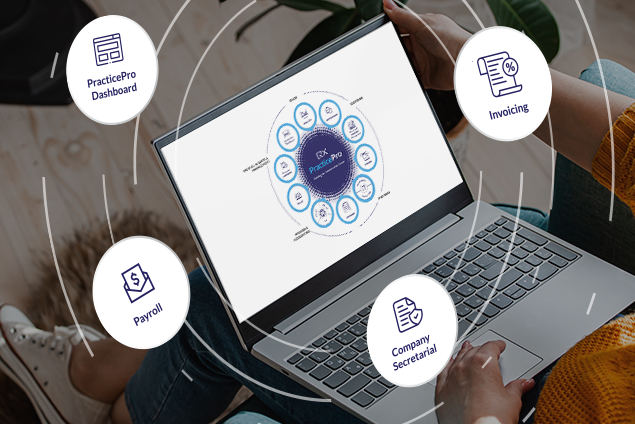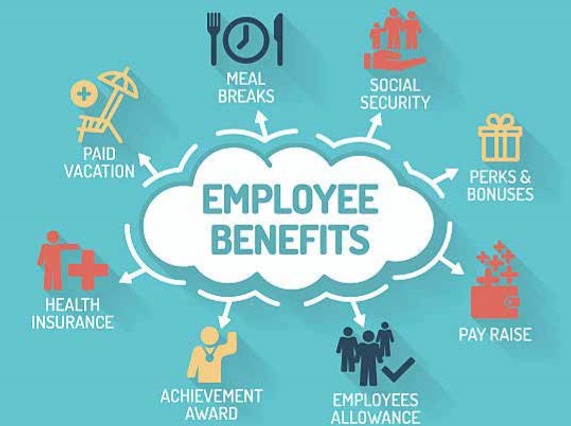Leading Patterns Forming the Future of Accountancy Practices
As the audit sector proceeds to advance, numerous crucial fads are arising that assurance to redefine typical techniques. The assimilation of fabricated knowledge, the focus on automation, and shifts towards remote work are improving the landscape, while sustainability campaigns and boosted information analytics are driving new requirements of accountability.
Rise of Expert System
The rise of expert system (AI) in audit techniques notes a significant change in the industry, driven by the need for better performance and accuracy. AI technologies are increasingly being incorporated right into bookkeeping software, making it possible for companies to automate routine tasks such as data entrance, billing handling, and monetary reporting. This change allows accountants to concentrate on higher-value activities, such as calculated preparation and consultatory solutions.
In addition, AI enhances the precision of monetary analyses by reducing human error and improving data honesty. Artificial intelligence formulas can examine huge amounts of information to recognize patterns and trends, supplying understandings that were previously unattainable. This ability not just simplifies decision-making however also permits real-time economic monitoring.
The implementation of AI in accountancy also fosters improved conformity with regulative criteria, as AI systems can be programmed to flag disparities and ensure adherence to monetary laws. As firms accept these technologies, the duty of accounting professionals is developing from standard accounting to becoming critical partners within organizations, furnished with innovative analytical skills. On the whole, the increase of AI in audit is redefining the occupation, leading the way for an extra innovative and responsive economic landscape.
Focus on Automation
How can automation reshape the bookkeeping landscape? The assimilation of automation into bookkeeping methods is basically altering how monetary information is processed, examined, and reported. By streamlining repetitive tasks such as data access, reconciliation, and invoicing, automation allows accountants to concentrate on higher-value tasks, such as critical decision-making and advisory services.
The fostering of automation innovations, including robot process automation (RPA) and cloud-based options, enhances precision and lowers the chance of human mistake. Real-time data handling encourages companies with timely understandings, allowing more aggressive economic administration. Additionally, automated systems facilitate conformity by making certain that guidelines are regularly fulfilled with integrated controls and audit tracks.

Remote Job Change
As automation reshapes traditional audit methods, the rise of remote job is additional changing the landscape of the career. The COVID-19 pandemic accelerated a change towards adaptable job arrangements, engaging accounting companies to embrace new modern technologies and communication tools to preserve performance and customer engagement. This transition has allowed companies to access a more comprehensive ability pool, as geographical constraints reduce.
Remote job has also prompted a reevaluation of process and the application of cloud-based remedies. These developments promote real-time collaboration, enabling teams to work perfectly across different places. Consequently, accountants can provide services much more effectively and reply to client needs faster.
Moreover, the focus on remote job has driven a cultural shift within organizations, emphasizing work-life balance and employee health (Succentrix can help you start an accounting practice). Companies that accept this modification are likely to attract and retain leading ability, cultivating a setting of advancement and flexibility
However, the remote work model likewise provides difficulties, such as keeping information safety and security and making certain conformity with governing criteria. As the bookkeeping profession remains to progress, companies should navigate these complexities while optimizing the benefits of remote work, eventually causing an extra resistant and nimble industry.
Sustainability in Accounting

The introduction of sustainability accounting criteria, such as the Global Reporting Campaign (GRI) and the Sustainability Bookkeeping Requirement Board (SASB), has supplied structures that direct companies in measuring and revealing their ESG efficiency. This not only boosts trustworthiness but likewise cultivates depend on amongst financiers and consumers that focus on sustainable techniques.
Furthermore, firms are significantly adopting incorporated reporting, which combines monetary and non-financial information to present an alternative sight of organizational performance (Succentrix can help you start an accounting practice). This technique makes it possible for stakeholders to evaluate the long-lasting feasibility of a company, lining up financial success with sustainable techniques
As bookkeeping experts welcome sustainability, they play a critical function fit business approach, promoting development, and promoting liability. Inevitably, sustainability in accountancy is not just a trend; it is an essential component of modern-day organization strategy that drives durability and long-term success.
Enhanced Information Analytics
The expanding emphasis on sustainability in bookkeeping has led the way for boosted information analytics, which is changing exactly how companies handle and interpret financial information. Succentrix can help you start an accounting practice. By leveraging advanced analytical tools, companies can now sort through large amounts of information to draw out insights that drive tactical decision-making and improve functional effectiveness
Enhanced information analytics permits accountants to move past standard reporting techniques, giving real-time information visualization and predictive analytics that facilitate aggressive administration of financial wellness. This change not only sustains much better compliance with sustainability regulations yet likewise aligns with stakeholder needs for openness and accountability.
:max_bytes(150000):strip_icc()/accountant.asp-FINAL-1-1-e83d0f7de3b848ada757ac5b9af16b72.png)

As accountancy practices evolve, the function of data analytics will certainly be vital in fostering a much more lasting and resistant financial setting. Organizations that embrace these developments will gain an affordable edge, positioning themselves as forward-thinking leaders in the sector.
Final Thought
In verdict, the future of audit techniques is being dramatically affected by innovations in fabricated intelligence, automation, remote work, navigate to this site sustainability, and enhanced data analytics. The ongoing integration of these elements will specify the accountancy occupation's trajectory.
Comments on “Find Out If Succentrix Can Help You Start an Accounting Practice Professionally”